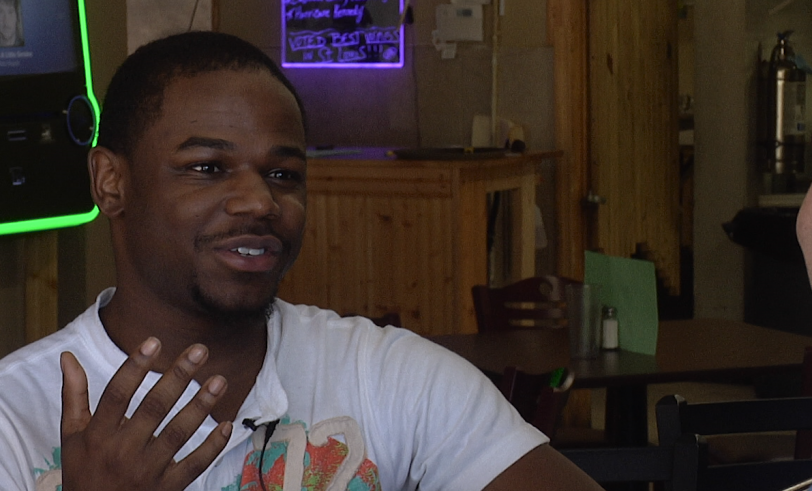Minimum Wage Harms the Workers It’s Meant to Help

If you grab lunch at Sister Cities in the Dutchtown neighborhood of St. Louis, you’re likely to be greeted by Javion Johnson (going by JJ), who works the front of the popular Cajun and BBQ restaurant several days a week. JJ is 22 years old, lives in the neighborhood, and wants to pursue his passions for art and food. He didn’t start working in the front of the restaurant, however; he got the job when the co-owner, Pam Melton, needed a dishwasher in a pinch.
JJ first stopped into the restaurant after smelling the food. “I could smell the smoke from Louisiana.” JJ tells me. [Louisiana is a street several blocks from Sister Cities.]
When JJ and his girlfriend went inside to check out the place, Pam needed someone to help out in the back of the house. She asked him if he’d like to make some extra money. “I was like, sure, why not?”
After starting washing the dishes, JJ quickly worked his way to the front of the house. Pam told him, “You have a good smile. You have a good personality. I need you in the front. You can’t be nice to the dishes anymore. They’re clean now.”
Now JJ seats customers, takes orders, takes care of checks, and works as a back bar man. Sister Cities put up a chalk board, so JJ taught himself chalk art from a Youtube channel. He now does much of the signage for Sister Cities.
JJ’s story is a common one. When I was a teen I got a restaurant job under similar circumstances; the manager needed someone to wash dishes. I got my foot in the door cleaning, bussing, and earning minimum wage, but soon moved up to a position where I took orders and prepared food.
Minimum wage mandates are so dangerous because they threaten people like JJ who don’t already have formal work experience. If Pam had been forced to pay a starting wage of $11, she probably wouldn’t have taken a risk on someone without previous restaurant experience. If you remove the bottom rung of the economic ladder, it’s harder for people to get the skills they need to move up.
Minimum wage laws can also keep businesses from operating altogether. “I’m afraid I’ll ultimately have to close my doors,” Pam tells me when I ask her about the impact of the minimum wage hike. If Pam has to shut down Sister Cities or move out of the city, JJ will be out a job.


